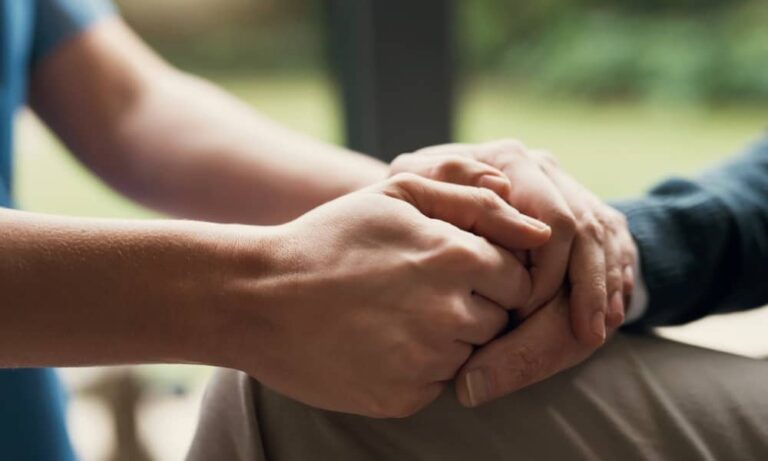Promoting better mental health
Five quick tips
It’s good to start small, and start simple. So here are five easy steps to start your journey to better mental health.
From kick-starting your exercise routine to tweaking your diet, they are designed to help you redress your mental balance and encourage you to move on to exploring other wellness techniques and strategies.
Get away from it all
When it comes to looking after our overall health, our mental wellbeing is sometimes overlooked.
Also overlooked are the positive benefits of escaping from the trappings of everyday life.

You may want to consider a getaway or retreat, either as a solo self-care package or with the support of a significant other.
Click here for our five top retreats around the world for promoting better mental health.
Become an early riser
Key to improving mental health outcomes is pursuing a range of healthy habits, and one of them is getting out of bed early.
Of course, not everyone is a “morning person”.
But being an early riser – and maintaining that in your routine – strengthens your body clock, which has positive implications for lifestyle choices such as eating well and exercising.
Think of it as a starting point to getting into a healthier cycle, which will have knock-on benefits for your own wellbeing.
Click here to see why kicking off the duvet earlier will help you to better mental health.
Get moving again
The benefits of exercise on mental health are well documented, and there is no overstating how much a regular fitness regimen improves our mental wellbeing.
A study by the Black Dog Institute revealed that regular exercise of any intensity can help stave off depression.

Click here to find out more, and for several tips on how to incorporate more exercise into your routine and get your body and mind moving again.
Improve your gut health
Treating and easing depression can start with a look at what we’re putting inside our gut.
In a study earlier this year, some of the bacteria living in our guts were linked with depression – drawing a significant connection between gut microbes and mental health.

Here is some background on how diet affects our mental health, and below are some ideas and inspiration for boosting your gut health, and with it, that of your brain:
Top eight foods for gut health
Simple steps to keep your gut healthy
Try more raw food
Raw fruit and vegetables may be better for your mental health than cooked, canned and processed alternatives, according to a study from The University of Otago
“This research is increasingly vital as lifestyle approaches such as dietary change may provide an accessible, safe and adjuvant approach to improving mental health,” said Dr Tamlin Conner, the study’s lead author.
Find out more here, and which raw foods can improve your mental health.
The benefits of pets
Keeping a domestic pet has been proven to ease anxiety and stave off depression among people from a range of backgrounds and ages.
Whether it’s animal or human, companionship is key to maintaining strong mental health and resilience.
Find out more here, and how owning a cat can drastically ease stress and anxiety.
Mental health: Those who have inspired us
Prince Harry
Prince Harry’s lifelong journey with mental health started without him realising, when he shut away the emotion and grief of his mother Princess Diana’s death until his late 20s.

Now, The Duke of Sussex is on a quest to undo that agony by helping others who “suffer silently”.
Click here to read more about Harry’s personal battle
Emma Thompson
She’s known for her cheery, upbeat demeanour, but Emma Thompson reminds us no one is immune to mental illness.
Here she shares her mental health advice and 20 tips of her own that help her cope with depression.
James Middleton
Earlier this year, James Middleton – brother of the Duchess of Cambridge, Kate – revealed that he had been battling with depression other mental-related distress since 2016.
“I know I’m richly blessed and live a privileged life. But it did not make me immune to depression,” he went on to say. “It is tricky to describe the condition. It is not merely sadness. It is an illness, a cancer of the mind.”
Click here to find out more about James’ journey and how it could help you.
Lady Gaga
To tie in with last year’s World Mental Health Day, singer and actress Lady Gaga penned a hard-hitting piece in The Guardian highlighting the grave implications of depression and anxiety, as well as sharing her own experience and struggles with mental health.

“The time has come for us all, collectively, to tackle the causes and symptoms of mental illness, and provide care for those who suffer from it,” she said at the time – click here to find out what else she had to say.
World Mental Health Day: Why it’s important
Since 1992, the day has been hosted annually by the World Mental Health Federation with the aim of raising awareness of global mental health issues and supporting sufferers.
This year’s focus is suicide prevention.
The World Health Organisation is encouraging the world to join in with “40 seconds of action” to highlight the harrowing fact that someone loses their life to suicide every 40 seconds.
According to the WHO, “if we don’t act urgently, by 2030 depression will be the leading illness globally.”
Where to get help
Australia
Beyondblue (1300 22 46 36)
Mindspot (1800 61 44 34)
Lifeline (13 11 14)
New Zealand
The Depression Helpline (0800 111 757)
Healthline (0800 611 116)
Lifeline (0800 543 354)







